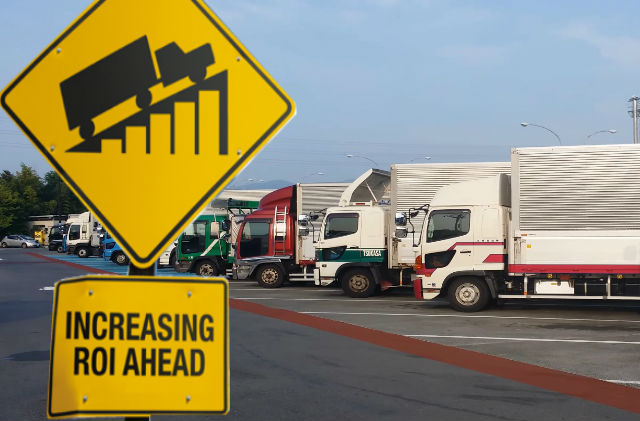Business, as complicated of an activity it is, can be simplified as a goal-driven game of trying to harvest more than what you planted. Starting one requires capital and the skills to make it work. In this game, it is a must to really set everything into place so that things will really fall to the right place. The use of GPS tracking helps increase ROI in the sense that business owners are able to track and monitor the fuel use of their fleet through the routes the driver is taking.
There’s no definite criteria as to when you can say a business is totally successful, but there’s a metric that helps you determine whether or not you are economically performing well: return on investment.
Investments are a business’s foundation. Every businessman lives every day taking one risk after another. He does this while hoping that for every cent he gives up, he gets ten times more in return. Now how does one ensure there will be high ROIs? By making the right investment.
GPS Tracking Helps Increase ROI in Businesses That Rely on Fleet Management
Scroll down for video

For a business that needs a well-functioning fleet of vehicles for daily operations to remain uninterrupted, a keen eye for details is not enough. It requires time-tested and effective skills and years of experience to keep up with the demands of the job. In the case of a delivery service, for example, you have to know more than just which vehicle is good to go. You need to make sure every conveyance of the items is made within the designated period and see to it that every delivery does not result in loss or damage of goods.
But fleet management, just like any other job, comes with a number of challenges. Drivers making unauthorized trips and poor route management are just two of the issues that can financially hurt the whole company. Luckily, though, there is a way to prevent all these while significantly improving operations: adopting an IoT-enabled fleet management tracking.
Technology has proven time and time again that it is here for no other reason but to make tasks easier, speed up operations, and basically revolutionize how most things are done. With the introduction of GPS vehicle tracking system to fleet management businesses, managers now have a way to prevent any problem that might end in damages or losses. GPS tracking helps increase ROI by cutting down expenses while at the same time increasing productivity, thereby lowering cost of investments while increasing profit.
How GPS Tracking Helps Increase ROI
![]()
If you’ve been in the business for a while, you’ve probably heard of the term telematics. This is defined as the integration of telecommunications into vehicle tracking. A lot of fleet managers have seen an increase in return on investment after knowing the importance of fleet monitoring.
Here’s how it can help.
1. Lowers operating costs
One of the ways GPS tracking helps increase ROI is by cutting operational costs. GPS monitoring allows managers to find the shortest and most efficient way possible. With this, they can avoid routes where there are heavy traffic and roads that are under construction, consequently reducing travel time and lowering fuel expenses.
Data gathered from monitoring vehicles also gives you enough information on driver activity, which you can analyze to come up with new rules and policies that promote economical driving. GPS tracking also helps managers determine which vehicles are up for maintenance to avoid sudden breakdowns, service calls, and unexpected repairs.
2. Reduces labor expenses
Not only does GPS tracking helps increase ROI and give information on the vehicles used, it also yields important data on driver behavior, especially on the road. Speeding, idling, and unwanted braking habits are just some of the mistakes drivers think they can always get away with, without thinking about the impact it has on the company.
With GPS tracking, you can verify work hours by looking into the times when drivers are on the move or when they are just idling someplace they think no one can see them, which contributes to unexpected increase on fuel costs. You can also hold drivers accountable should anything happen while they are in an unauthorized location or making unauthorized trips.
3. Fosters productivity
Improved productivity is another one of the ways GPS tracking helps increase ROI. With improved route management, travel time is reduced and less travel time for each transaction means more work done. And with a system that helps you determine whether your driver is constantly on the go doing their job or just idling, drivers will be encouraged to do more. And with fewer labor expenses and more job done, the higher the ROI will be.
4. Increases customer satisfaction
Using GPS vehicle tracking helps you improve the quality of the service you provide, and with a better-quality service comes improved customer satisfaction. If a customer had a great experience with you, they would recommend your service to their family and friends, which only means one thing: more customers, the best return on investment.
Watch the videos below